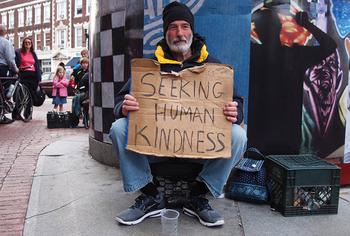A new study among students, found that those who smoked cannabis performed better academically than their tobacco smoking, stigmatized peers. The study has been collecting data among students (8,331 in total) in grade 7,9 and 11 for 30 years, and noticed the following trends. While the use of tobacco around the 90ties decreased, the use of cannabis increased. While the use of tobacco became increasingly associated with a slow and painful death due to cancer, the cry for legalization of cannabis for medicinal purposes (for example to treats side effects of cancer treatment) gave cannabis a more positive image. The study emphasizes that performing worse academically has nothing to do with the substance tobacco itself. Although it is well known that cannabis can effect one’s memory, no such effect is known about tobacco. The fact that tobacco users perform worse than cannabis users has all to do with changing social norms and the marginalizing of tobacco smokers. The study seems to suggest that it is a double effect: marginalized students will choose to smoke tobacco rather than cannabis, but this will marginalize them further. Students who use marijuana are more like the general population, so perform better academically than the marginalized group. Instead of zooming in on the effects of marginalization of tobacco smokers, the study chooses to warn again the normalization of cannabis use, which, according to the study, is a very dangerous substance, in many aspects as dangerous as tobacco. Non-users of tobacco or cannabis still perform better than cannabis users. The study wants to make a case against the legalization of cannabis.
Zinberg famously distinguished three aspects that determined the effect of a substance: the properties of the substance itself, the characteristics of the person taking them, and the social setting wherein the substance is taken. This study nicely illustrates the importance of setting, or social norms around substance use. It shows that setting determines more of the negative effects of the substance than the properties of the substance itself, and how hard it is to determine the negative effects of a substance separated from the social context. It shows that the attractiveness of certain substances is more determined by their social status than by their properties. Many studies have also shown that the effect of a substance in a vulnerable population is different than in a general population. The famous veteran study of Robins showed that Vietnam veterans who became dependent on heroin in Vietnam, had no problems giving up their habits once returned to the United States. The general population mostly succeeds better in the recreational or temporarily use of a substance, because they have more incentives to control their use, and less other problems to self-medicate for.Read More »The advantages and disadvantages of stigmatizing smoking
 The internet and print media are happy to herald that movie director Lars Von Trier can’t work without alcohol. He reports that he tried to be sober and went to AA meetings for half a year, but has now started drinking again in order to be able to work. This is a victory for those who believe that artists are more creative on drugs. As Von Trier himself ranted late last year, before going in rehab, he thinks that going clean will probably mean the end of his career. He probably won’t be able to make movies at all, and what he will produce, will be ‘shitty’. ‘There is no creative expression of artistic value that has ever been produced by ex-drunkards and ex-drug-addicts. Who the hell would bother with a Rolling Stones without booze or with a Jimi Hendrix without heroin?’ He states that he wrote the screenplay for Dogville during a 12-day drug binge, but working on the screenplay for Nymphomaniac, while sober, took him 18 months.Read More »Why do we like our artist on drugs, but not our sportspeople?
The internet and print media are happy to herald that movie director Lars Von Trier can’t work without alcohol. He reports that he tried to be sober and went to AA meetings for half a year, but has now started drinking again in order to be able to work. This is a victory for those who believe that artists are more creative on drugs. As Von Trier himself ranted late last year, before going in rehab, he thinks that going clean will probably mean the end of his career. He probably won’t be able to make movies at all, and what he will produce, will be ‘shitty’. ‘There is no creative expression of artistic value that has ever been produced by ex-drunkards and ex-drug-addicts. Who the hell would bother with a Rolling Stones without booze or with a Jimi Hendrix without heroin?’ He states that he wrote the screenplay for Dogville during a 12-day drug binge, but working on the screenplay for Nymphomaniac, while sober, took him 18 months.Read More »Why do we like our artist on drugs, but not our sportspeople?
